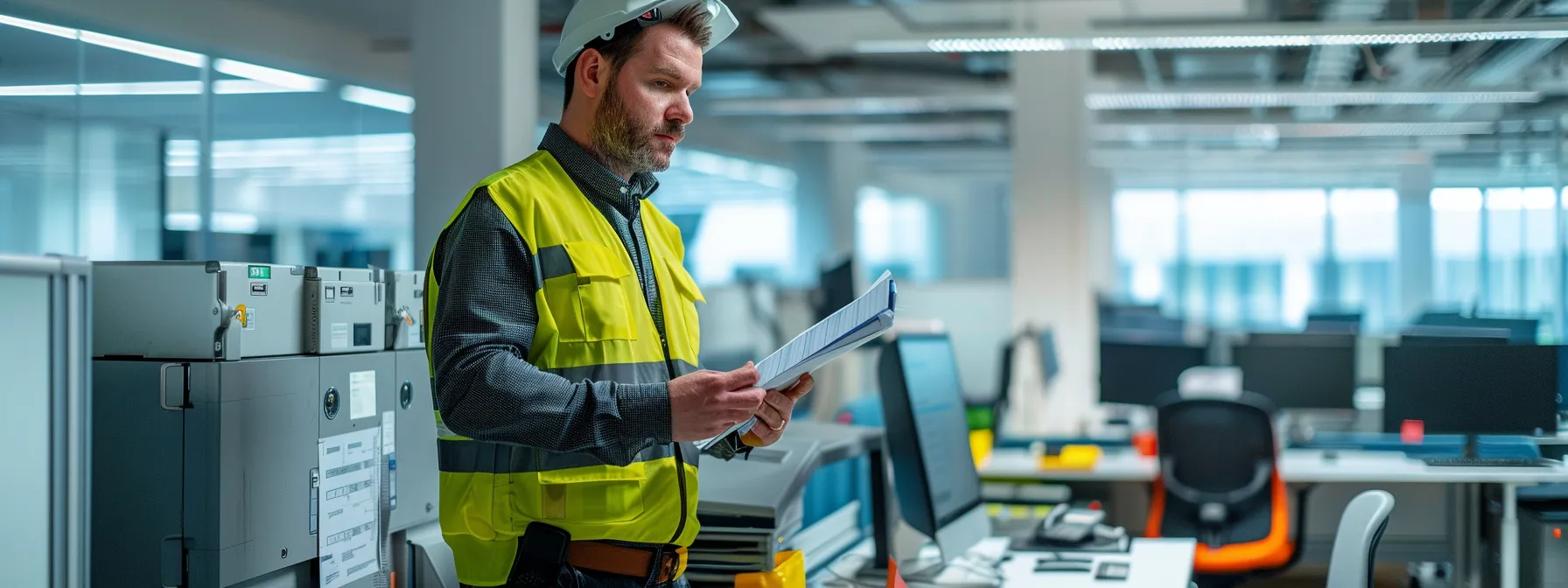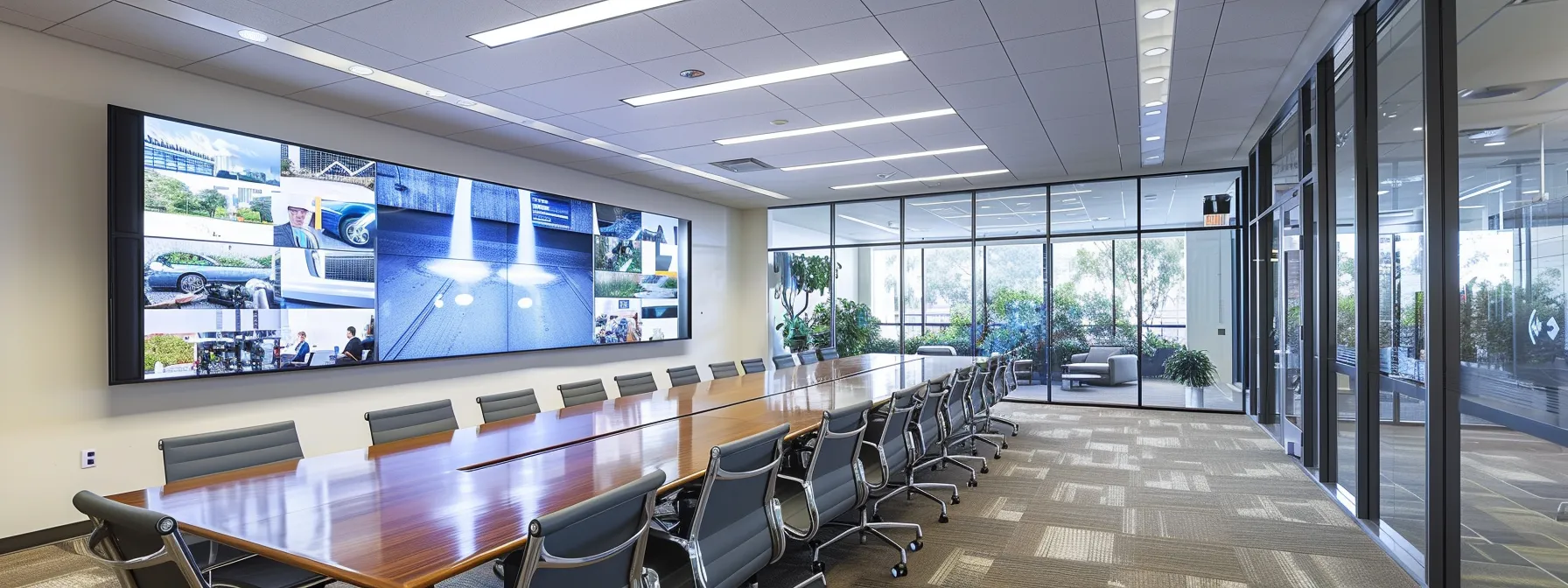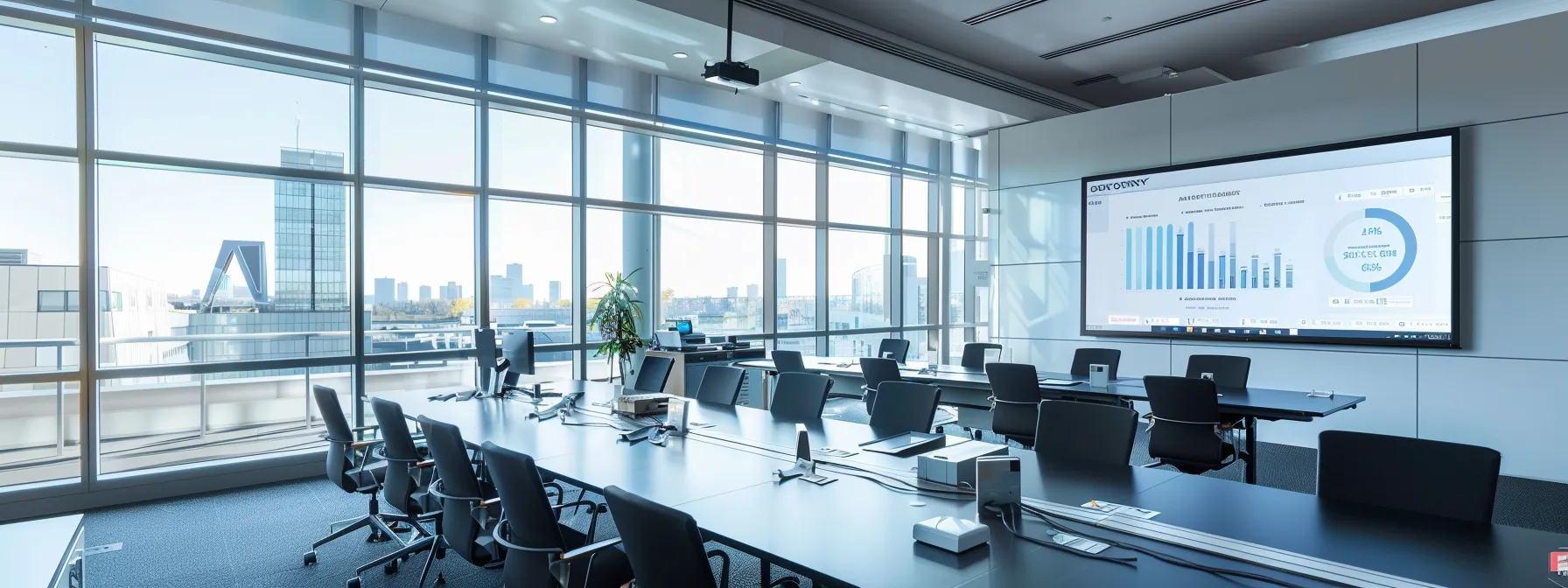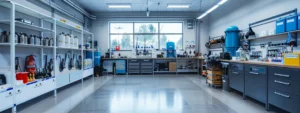The Importance of Regular Drain Maintenance for Companies
Regular drain maintenance is often overlooked by companies, yet it can lead to significant operational issues if neglected. This article explores the benefits of routine drain care, key components of effective maintenance, and the essential role of professional commercial sewer and drain cleaning. By addressing common problems such as clogs and backups, businesses can ensure smooth operations, avoid costly repairs, and enhance their facilities’ functionality. Engaging with this content will equip readers with practical practices to maintain their commercial drain systems efficiently, ultimately saving time and resources.
Key Takeaways
- Regular drain maintenance reduces emergency repairs and saves businesses money over time
- Proactive cleaning prevents health hazards and promotes a safe work environment for employees
- Routine inspections help identify potential problems early, preventing costly disruptions and downtime
- Effective drain upkeep enhances system efficiency and extends the lifespan of plumbing equipment
- Implementing a maintenance schedule supports environmental compliance and promotes sustainable operational practices
Understanding the Benefits of Regular Drain Maintenance for Businesses

Regular drain maintenance offers businesses significant benefits. It aids in reducing emergency repair costs by addressing potential issues before they escalate. Enhanced system efficiency ensures optimal performance, while preventing health hazards safeguards employee well-being. Additionally, maintenance extends equipment lifespan and supports environmental compliance. Businesses that prioritize sewer repair can avoid reliance on chemical drain cleaners and maintain clean, functional sinks and drains.
Reducing Emergency Repair Costs
Routine inspections play a vital role in reducing emergency repair costs for businesses. By identifying potential issues in grease traps or waste disposal systems early, companies can address matters before they escalate into costly emergencies. For instance, a simple inspection can uncover blockages or faulty components, allowing for timely repairs and preventing extensive damage that would demand urgent and expensive interventions.
Furthermore, proactive drain maintenance, including regular assessments and cleaning, aids in the seamless operation of systems like air conditioning, which often rely on proper drainage. Neglecting these systems can lead to accumulations or backups, potentially disrupting business operations and incurring unexpected repair bills. Thus, prioritizing regular drain checks not only saves money but also supports uninterrupted business functionality.
Enhancing System Efficiency
Regular drain maintenance significantly enhances system efficiency by ensuring optimal water flow and preventing blockages. Systems that are well-maintained can handle soap residues and waste effectively, reducing the risk of backups that can hamper operations. Furthermore, employing video camera inspections allows businesses to identify issues early, facilitating prompt resolutions that keep drainage systems functioning smoothly and avoid disruptions to customer service delivery.
Additionally, routine cleaning using pressure techniques can help maintain clear drainage paths, ultimately improving overall system performance. This proactive approach not only minimizes the risk of pest infestations associated with stagnant water but also prolongs the lifespan of drains, ensuring their reliability over time. By prioritizing regular maintenance, businesses can create a more efficient environment that contributes to operational success.
Preventing Health Hazards
Regular drain maintenance is crucial for preventing health hazards in commercial environments. Effective drain cleaning ensures maintenance of proper flow, reducing the risk of backups that can lead to harmful stagnation. For instance, a well-maintained commercial floor drainage system mitigates the conditions that foster pest infestations and unpleasant odors, safeguarding employee health and maintaining a safe work atmosphere.
Additionally, addressing stormwater drainage early is essential for preventing contamination and reducing potential liabilities. Implementing routine assessments allows businesses to identify and rectify issues promptly before they become significant threats. By minimizing reliance on harsh drain cleaners, companies contribute to a healthier workplace while promoting environmental responsibility.
Extending Equipment Lifespan
Regular drain maintenance plays a pivotal role in extending the lifespan of critical plumbing equipment, such as pumps and pipes. By routinely removing organic matter and debris from these systems, businesses can prevent clogged drains that could otherwise lead to excessive wear and tear. Timely interventions not only enhance system performance but also reduce instances of premature equipment failure, allowing companies to optimize their investment in plumbing infrastructure.
Moreover, proactive drain upkeep ensures that water flows freely through pipes, minimizing the risk of backups that could damage pumps and related components. By maintaining clear paths within drainage systems, organizations can avoid costly repairs and replacements while promoting a more efficient operational environment. This commitment to regular maintenance ultimately contributes to long-term savings and improved reliability of essential business systems.
Improving Environmental Compliance
Regular drain maintenance is essential for enhancing environmental compliance in commercial settings. Proper maintenance of drains, particularly those connected to bathrooms, helps prevent backups that can lead to wastewater overflow, significantly reducing the risk of environmental contamination. This not only protects local ecosystems but also ensures companies adhere to regulations aimed at safeguarding public health and the environment.
Incorporating commercial drain cleaning into a business’s routine can lead to more sustainable practices. By addressing waste management proactively, companies minimize the need for harsh chemical drain cleaners, which can harm the environment. Establishing a consistent maintenance schedule reinforces a commitment to environmental responsibility while also preventing emergency situations associated with drainage failures, ultimately supporting a cleaner, healthier community.
- Regular drain maintenance prevents backups, enhancing environmental compliance.
- Proactive drain cleaning minimizes the reliance on harsh chemicals.
- Maintained drains aid in waste management and sustainability efforts.
Regular drain maintenance keeps businesses running smoothly. Next, let’s explore the key components that make this process effective.
Key Components of Effective Drain Maintenance

Effective drain maintenance encompasses several key components that ensure optimal functionality for commercial systems. Routine inspection procedures help identify leaks and common issues, while using proper cleaning techniques minimizes risks of backflow. Engaging professional cleaning services ensures thorough and effective solutions. Implementing maintenance schedules enhances repair strategies, ultimately supporting a reliable drainage system and maximizing operational efficiency.
Routine Inspection Procedures
Routine inspection procedures are fundamental in maintaining optimal drainage systems for businesses. Regular assessments help identify potential problems such as leaks or blockages, enabling companies to address issues before they escalate into costly repairs. For restaurants, effective drain cleaning is essential not only for operational efficiency but also for ensuring a clean environment that enhances customer satisfaction.
Effective inspections also play a crucial role in pest control, as improperly maintained drains can attract unwanted pests. By using reliable drain cleaners during maintenance, businesses can ensure that their drainage systems remain clear of debris and buildup, consequently minimizing health risks and maintaining a safe environment for employees and customers alike. A proactive approach to drainage management is an investment in the wellbeing of both the business and its patrons.
| Inspection Procedure | Description | Benefits |
|---|---|---|
| Regular Assessments | Frequent checks for leaks and blockages. | Prevents costly repairs and enhances efficiency. |
| Professional Cleaning | Utilizing expert services for thorough cleaning. | Ensures consistent functionality and safety. |
| Proactive Maintenance | Scheduling regular drain cleaning sessions. | Reduces reliance on harsh chemicals and promotes sustainability. |
Using Proper Cleaning Techniques
Using proper cleaning techniques is essential for maintaining effective drainage systems in commercial settings. Regular cleaning of drains, including showers and sinks, can prevent clogs caused by buildup of hair, soap residue, and other debris. Businesses benefit from employing specialized cleaners designed to tackle these blockages, offering a more thorough solution than typical household products.
Moreover, utilizing effective cleaning agents can reduce the risk of corrosion in plumbing systems, extending their lifespan and ensuring reliable performance. For example, using enzyme-based cleaners rather than harsh chemicals helps maintain a healthy environment while effectively breaking down organic materials within the pipes. Such proactive measures not only safeguard the integrity of the system but also enhance overall operational efficiency:
| Cleaning Technique | Description | Benefits |
|---|---|---|
| Regular Cleaning | Scheduled cleaning of drains to remove buildup. | Prevents clogs and maintains flow. |
| Enzyme-Based Cleaners | Using cleaners that break down organic material. | Minimizes corrosion and promotes longevity. |
| Thorough Inspections | Routine checks to assess drainage efficiency. | Identifies potential problems early. |
Importance of Professional Services
Engaging professional services for drain maintenance offers businesses expertise that can significantly enhance the functionality of their plumbing systems. Trained technicians utilize advanced tools and techniques to conduct thorough assessments, identifying issues that homeowners or staff might overlook. Their capabilities ensure that potential problems, such as leaks or blockages, are resolved promptly, reducing future repair costs and maintaining seamless operations.
Additionally, professionals are equipped to handle specialized situations that may arise, including those intensified by seasonal changes, such as heat and heavy rainfall. By utilizing their knowledge, companies can ensure their plumbing systems operate efficiently throughout the year. This proactive approach not only improves the performance of drains but also provides peace of mind, knowing that a reliable system safeguards the work environment and protects employee well-being.
Identifying Common Drain Issues
Identifying common drain issues is a critical aspect of effective drain maintenance for businesses. Frequent signs of trouble include slow drainage, unpleasant odors, and water pooling around sinks or floor drains. These indicators often suggest blockages or buildup that require prompt attention to prevent significant disruptions to business operations.
Common problems such as grease accumulation, foreign objects, and broken pipes can lead to costly repairs if not addressed quickly. Businesses can benefit from routine inspections that focus on detecting these issues early, ensuring that drains operate efficiently and minimizing the risk of emergencies. A proactive maintenance plan is vital in safeguarding against these prevalent concerns:
| Common Drain Issues | Description | Potential Consequences |
|---|---|---|
| Slow Drainage | Water takes longer to flow down the drain. | Potential blockages that can become worse over time. |
| Unpleasant Odors | Foul smells indicating stagnant water or debris buildup. | Increased health hazards and unsanitary conditions. |
| Pooling Water | Water accumulating in sinks or on floors. | Risk of flooding and damage to property. |
Implementing Maintenance Schedules
Implementing maintenance schedules is essential for establishing a systematic approach to drain upkeep in commercial settings. By scheduling regular inspections and cleanings, companies can prioritize their drainage systems, ensuring potential problems are identified and addressed before they escalate into costly issues. For instance, a restaurant that schedules bi-monthly drain assessments can consistently maintain optimal flow, thus preventing the accumulation of grease and debris that leads to blockages.
A well-organized maintenance schedule not only enhances the efficiency of plumbing systems but also minimizes downtime and disruption in business operations. Businesses benefit from having a routine that aligns with their operational needs, allowing for convenient timing of maintenance tasks. This proactive approach ultimately safeguards the work environment, ensuring that facilities remain safe and functional for employees and customers alike.
Every business relies on its infrastructure to thrive. Understanding when to call in experts for commercial sewer and drain cleaning can make all the difference.
The Role of Professional Commercial Sewer and Drain Cleaning

Professional commercial sewer and drain cleaning services bring essential expertise and specialized equipment to businesses. These services offer comprehensive system assessments, ensuring that potential blockages are identified and addressed promptly. By utilizing advanced cleaning methods, professionals can provide tailored solutions suited to the unique needs of different businesses, helping to maintain safe and effective drainage systems.
Expertise and Specialized Equipment
Professional commercial sewer and drain cleaning services rely on skilled technicians who possess extensive knowledge in identifying and resolving drainage issues. These experts employ advanced tools such as high-pressure water jets and video inspection equipment, enabling them to detect hidden blockages and structural problems within the drainage system. By utilizing this specialized equipment, businesses can avoid costly disruptions and maintain optimal functionality of their plumbing systems.
Moreover, the expertise of professional drain cleaning services ensures that preventive measures are taken to address conditions that could lead to emergencies. With their familiarity in dealing with various drainage problems, these professionals can implement tailored solutions to meet the specific needs of different business environments, thereby enhancing overall operational efficiency. This comprehensive approach not only supports immediate repairs but also fosters long-term maintenance strategies for sustainable plumbing performance.
Comprehensive System Assessments
Comprehensive system assessments conducted by professional commercial sewer and drain cleaning services are essential for identifying potential issues within drainage systems. These assessments involve a thorough inspection of pipes, connections, and other components to uncover problems that may not be visible to untrained eyes. For instance, a business may experience slow drainage without realizing that buildup from grease or debris is obstructing flow, which professional technicians can detect and address effectively.
By utilizing advanced tools such as video inspection cameras, professionals can pinpoint exact locations of blockages and structural weaknesses. This proactive approach not only prevents minor issues from escalating into costly repairs but also enhances the overall efficiency and longevity of plumbing systems. Companies that invest in these comprehensive assessments benefit from a reliable drainage system, allowing them to maintain smooth operations and avoid unexpected disruptions.
Advanced Cleaning Methods
Advanced cleaning methods employed by professional commercial sewer and drain cleaning services are crucial for maintaining efficient drainage systems. High-pressure water jetting is one such technique that effectively removes stubborn blockages and accumulated debris, ensuring that pipes maintain optimal flow. This method not only cleans the surfaces but also reduces the risk of future clogs, providing long-lasting benefits for businesses reliant on their plumbing systems.
Another effective technique is the use of video inspection cameras, which allow professionals to visually assess the condition of the pipes and identify hidden issues. By pinpointing locations of blockages or structural problems, technicians can target their cleaning efforts and ensure comprehensive maintenance. This proactive approach saves companies valuable time and resources, helping them avoid costly repairs and interruptions to their operations.
Identifying and Addressing Blockages
Identifying and addressing blockages in commercial drain systems is essential for maintaining optimal functionality. Professional drain cleaning services utilize advanced equipment, such as video inspection cameras, to detect hidden clogs that may not be visible to the naked eye. This thorough examination enables technicians to locate issues early, preventing minor problems from escalating into costly repairs and significant disruption to business operations.
Once blockages are identified, professionals employ effective cleaning methods, like high-pressure water jetting, to remove stubborn debris and ensure smooth water flow. By addressing these issues promptly, companies can avoid downtime and maintain a clean, efficient environment for employees and customers. Regular maintenance not only safeguards against potential emergencies but also fosters reliable plumbing performance, ultimately supporting a company’s long-term operational success.
Tailored Solutions for Different Businesses
Professional commercial sewer and drain cleaning services provide tailored solutions to meet the unique needs of different businesses. For instance, restaurants with heavy grease build-up require specialized cleaning techniques that address the specific challenges posed by their operations. By implementing customized maintenance plans, businesses can effectively prevent blockages and ensure their drainage systems function smoothly, minimizing disruptions and safeguarding their operational efficiency.
Additionally, industries with varying wastewater compositions benefit from targeted assessments and cleaning approaches. A manufacturing facility may face different drainage issues compared to a small office building, necessitating distinct strategies for optimal performance. By working closely with professional drain cleaning experts, businesses can develop and execute maintenance schedules that are specifically designed to enhance system reliability while addressing their individual challenges.
Effective drain cleaning techniques have proven their worth, shaping the success of many businesses. Now, let’s look at real-world examples that highlight the value of proper drain maintenance.
Real-World Case Studies of Effective Drain Maintenance

Success stories from various industries illustrate the significant advantages of regular drain maintenance. By conducting a cost-benefit analysis, companies can clearly see the financial impact of proactive upkeep against the consequences of neglect. Lessons learned from past mistakes highlight the risks and challenges faced, while testimonials from satisfied clients may offer compelling evidence of effective practices. A comparative analysis of conditions before and after maintenance further underscores the value of these services in enhancing operational reliability.
Success Stories From Various Industries
One notable success story comes from a local restaurant that faced frequent plumbing issues due to grease buildup in their drains. After implementing a regular drain maintenance schedule with professional services, the restaurant saw a dramatic decrease in clogs and associated downtime. This proactive approach not only improved the efficiency of their plumbing system but also enhanced the dining experience for customers, as the establishment could operate without interruptions.
In another case, a manufacturing facility sought to address persistent drainage problems that affected production flow. By investing in routine assessments and advanced cleaning techniques, the facility effectively identified and resolved underlying issues before they escalated into costly repairs. As a result, this commitment to regular drain maintenance improved operational reliability, allowing the company to maintain steady production and meet client demands without the frustration of unexpected disruptions.
Cost-Benefit Analysis of Regular Maintenance
Conducting a cost-benefit analysis of regular drain maintenance reveals significant advantages for companies. For instance, a restaurant that invests in routine drain inspections and cleaning often sees a drastic reduction in emergency plumbing services, leading to substantial long-term savings. This proactive approach not only preserves the functionality of their drainage systems but also enhances customer experiences by preventing service disruptions.
The financial implications become even clearer when considering the alternative costs associated with neglected drains. In many cases, businesses face expenses related to emergency repairs, lost productivity, and even potential health hazards from unsanitary conditions. By regularly maintaining their drainage systems, companies safeguard against these costly issues, ultimately supporting a more reliable and efficient operational environment:
| Business Type | Cumulative Cost of Neglect | Benefits of Regular Maintenance |
|---|---|---|
| Restaurant | $20,000 annually due to plumbing emergencies | Improved system reliability and enhanced customer satisfaction |
| Manufacturing Facility | $15,000 annually in lost production | Consistent operational flow and reduced downtime |
Lessons Learned From Neglecting Drain Systems
Neglecting drain systems often leads to significant operational challenges for businesses. For example, a local grocery store experienced frequent flooding incidents due to blocked drainage lines, resulting in costly cleanup efforts and lost revenue during peak hours. Such incidents highlight the necessity of regular drain maintenance to prevent similar disruptions and maintain a safe shopping environment for customers.
Furthermore, a manufacturing company that overlooked its drainage needs faced substantial financial penalties due to environmental violations tied to improper waste management caused by clogged drains. These experiences reinforce the critical nature of proactive drain maintenance, as companies that prioritize this aspect can avoid severe repercussions, ensuring compliance with regulations and safeguarding their reputation in the industry.
Testimonials From Satisfied Clients
Clients often express satisfaction with the transformative impact of regular drain maintenance on their operations. For instance, a local restaurant reported that after implementing a consistent cleaning schedule, they noticed a significant reduction in plumbing emergencies, allowing them to serve customers without interruptions. This proactive approach not only improved their system reliability but also enhanced overall customer satisfaction, demonstrating the tangible benefits of routine maintenance.
Another client, a manufacturing facility, shared their experience of how regular assessments led to efficient operations and minimized production downtime. By addressing drain issues before they escalated, they avoided costly repairs and maintained smooth workflows. This experience underscores the importance of timely maintenance in safeguarding business productivity and operational success.
Comparative Analysis of Before and After Maintenance
A comparative analysis of drain maintenance shows notable differences in operational efficiency before and after such upkeep is implemented. For instance, a retail establishment that experienced frequent drain backups prior to regular maintenance found that after adopting routine cleaning schedules and inspections, issues significantly diminished. This proactive approach not only reduced downtime but also improved the overall shopping experience for customers, highlighting the direct benefits of maintaining functional drainage systems.
Understanding the success stories of drain maintenance reveals what can be achieved. Next, let’s look at the best practices essential for keeping commercial drain systems in prime condition.
Best Practices for Maintaining Commercial Drain Systems

Establishing a dedicated maintenance team is crucial for effective drain system upkeep. Staff training on preventive measures enhances awareness, while utilizing technology for monitoring drain health allows for real-time assessments. Setting up an emergency response plan ensures swift action during incidents, and budgeting for regular maintenance supports overall system reliability. Each of these strategies contributes significantly to maintaining efficient drainage systems.
Establishing a Maintenance Team
Establishing a dedicated maintenance team is essential for managing commercial drain systems effectively. This team, comprising skilled professionals trained in drain upkeep, can perform routine inspections and address issues promptly, ensuring that potential problems do not escalate into costly repairs. By having a knowledgeable group focused on maintaining the drain infrastructure, businesses can enhance operational efficiency and minimize unexpected disruptions.
Moreover, the maintenance team should implement training programs to educate staff about the importance of regular drain maintenance and preventive measures. This proactive approach empowers employees to recognize early signs of drainage issues, allowing for swift action before serious problems develop. Investing in a maintenance team not only safeguards drainage systems but also fosters a culture of responsibility and awareness that can significantly benefit the overall business environment.
Staff Training on Preventive Measures
Staff training on preventive measures is vital for maintaining commercial drain systems effectively. Employees should be educated on the importance of regular inspections and the identification of early warning signs of drainage issues, such as slow drainage or unusual odors. This training empowers staff to take immediate action, mitigating potential problems before they escalate into costly repairs.
A practical approach to staff training involves creating informative workshops that cover best practices in drain maintenance. Equipping employees with knowledge about proper waste disposal, the importance of avoiding grease buildup, and recognizing obstructions can significantly reduce the frequency of drainage issues. Regular training sessions reinforce these concepts, ensuring the entire team remains vigilant and proactive in their maintenance efforts:
- Conduct informative workshops on drain maintenance best practices.
- Educate employees on identifying early signs of drainage issues.
- Reinforce knowledge about proper waste disposal to avoid clogs.
Utilizing Technology for Monitoring Drain Health
Utilizing technology for monitoring drain health is a proactive strategy that businesses can implement to enhance their plumbing maintenance processes. Advanced tools, such as smart sensors and monitoring software, provide real-time data on drainage systems, allowing companies to track performance and detect potential issues before they escalate into major problems. For instance, businesses can receive alerts about unusual water levels or flow rates, prompting timely inspections and interventions that prevent costly repairs and operational disruptions.
Additionally, integrating video inspection technology enables businesses to visually assess the internal conditions of their drainage systems. This method allows for the identification of blockages, cracks, or wear that may not be noticeable during routine inspections. By leveraging these technological advancements, companies can ensure that their drain systems operate effectively and reliably, ultimately supporting their operational efficiency and safeguarding their reputation in the marketplace.
Setting Up an Emergency Response Plan
Establishing an emergency response plan is a critical component of effective drain maintenance for businesses. This plan should outline specific procedures to follow in the event of a drainage crisis, ensuring that employees are well-prepared to handle situations such as backups or overflow. By incorporating procedures like immediate notification of maintenance personnel and identifying key contact numbers for emergency drain cleaning services, companies can minimize disruptions and mitigate costs associated with unforeseen incidents.
Moreover, regular drills and training sessions can enhance employees’ understanding of the emergency response plan, making them more adept at managing drainage issues when they arise. For instance, equipping staff with knowledge about promptly shutting off water supply lines can significantly reduce potential damage during a drain failure. By prioritizing the development and implementation of an effective emergency response plan, businesses protect their operations and promote a safer environment for both employees and customers.
Budgeting for Regular Maintenance
Budgeting for regular maintenance is essential for companies aiming to maintain optimal drain performance and avoid costly emergencies. By setting aside a dedicated budget for drain inspections, cleaning, and repairs, businesses can ensure that their plumbing systems are consistently monitored and tended to. This proactive financial strategy allows organizations to address minor issues before they escalate, ultimately reducing the likelihood of significant, unplanned expenses that can disrupt operations.
Effective budgeting for drain maintenance also involves evaluating the specific needs of the business based on its industry and operational demands. For example, a restaurant with heavy grease buildup may require more frequent maintenance than a small office. By understanding these varying requirements and allocating resources accordingly, companies enhance their drainage system’s effectiveness while ensuring a safe and functional environment for employees and customers alike.
Even with the best practices in place, questions about drain maintenance will arise. Addressing these common concerns can ensure a smooth operation and prevent headaches down the line.
Frequently Asked Questions About Drain Maintenance

Understanding regular drain maintenance is crucial for companies to ensure operational efficiency and minimize costly disruptions. This section addresses key topics, including how often drains should be maintained, signs indicating drain problems, and the services included in commercial drain cleaning. Additionally, it covers how businesses can prepare for maintenance visits and the impacts of neglecting drain maintenance, providing valuable insights for proactive drain management.
How Often Should Drains Be Maintained?
Drains in commercial settings should ideally be maintained at least once every three to six months, depending on the type of business and its specific drainage needs. For instance, restaurants that deal with grease and food debris may require more frequent maintenance to ensure optimal functionality and prevent costly backups. Regular assessments help identify potential issues early, allowing for timely interventions that support consistent operational efficiency.
Establishing a maintenance schedule not only prevents disruptions but also fosters a culture of accountability within the workforce. By incorporating regular drain maintenance into routine operations, businesses can avoid unexpected emergencies that compromise productivity and safety. This proactive approach significantly benefits companies, ensuring smooth operations and safeguarding the work environment for employees and customers alike.
What Are the Signs of Drain Problems?
Identifying signs of drain problems early can save companies from costly repairs and operational disruptions. Common indicators include slow drainage, where water lingers in sinks or on floors, signaling potential blockages. Unpleasant odors emerging from drains often indicate trapped debris or stagnant water, suggesting that immediate attention is necessary to maintain a safe and efficient working environment.
Additionally, pooling water around fixtures can point to more serious plumbing issues, such as broken pipes or severe clogs. Companies should remain vigilant for these warning signs and conduct regular inspections to address any drainage concerns proactively. By staying attentive to these issues, businesses can ensure their systems operate smoothly and avoid the headaches associated with neglecting drain maintenance.
What Services Are Included in Commercial Drain Cleaning?
Commercial drain cleaning includes a variety of essential services designed to maintain optimal functionality in plumbing systems. These services typically involve routine inspections to identify any hidden issues, cleaning techniques that eliminate blockages caused by grease, debris, or tree roots, and the use of advanced technologies such as video inspection. This approach ensures that any existing problems are addressed promptly, resulting in a reliable and efficient drainage system that supports overall operational success.
In addition to cleaning and inspections, commercial drain cleaning services often provide preventive maintenance plans tailored to specific business needs. This can include regular scheduling for drain cleaning to avert emergencies and maintain compliance with health and environmental regulations. By engaging with professionals who offer comprehensive solutions, companies can minimize disruptions, enhance system performance, and protect their investments in plumbing infrastructure.
How Can Businesses Prepare for Maintenance Visits?
To effectively prepare for maintenance visits, businesses should first ensure that their plumbing access points are clear and easily accessible. This includes removing any obstacles around sinks, drains, or plumbing fixtures, allowing technicians to conduct thorough inspections and cleanings. Proper preparation not only facilitates efficient service but also minimizes the time and costs associated with the maintenance process.
Moreover, it is beneficial for businesses to maintain a clear record of previous drain maintenance activities, including past issues and repairs. This documentation helps maintenance technicians diagnose potential problems more quickly and accurately, leading to more effective solutions. By fostering open communication with the service provider about specific concerns or experiences, companies can enhance the effectiveness of their drain maintenance efforts.
What Are the Impacts of Neglecting Drain Maintenance?
Neglecting drain maintenance can lead to significant operational issues for companies, including costly repairs and loss of productivity. When drainage systems are overlooked, problems such as blockages, slow drainage, and unpleasant odors can arise, creating an unsanitary environment that can disrupt daily operations. For example, a manufacturing facility facing persistent drainage challenges may experience delays in production, resulting in lost revenue and strained customer relationships.
Moreover, deteriorating drain conditions can escalate into serious issues, such as sewage backups or environmental violations. These emergencies not only strain resources but can also incur hefty fines and damage a company’s reputation. By recognizing the impacts of neglecting drain maintenance, businesses can take proactive steps to ensure their systems function effectively and continue to support their operations:
| Impact of Neglect | Description | Potential Consequences |
|---|---|---|
| Costly Repairs | Deferred maintenance leads to larger drainage issues. | Significant financial expenses and unplanned downtime. |
| Loss of Productivity | Frequent disruptions in workflows from drain issues. | Reduced output and profitability. |
| Environmental Violations | Improper waste disposal and overflow incidents. | Potential fines and regulatory repercussions. |
Conclusion
Regular drain maintenance is essential for companies to ensure operational efficiency and prevent costly disruptions. By investing in proactive upkeep, businesses can significantly reduce emergency repair costs, enhance system performance, and mitigate health hazards. Establishing a consistent maintenance schedule fosters an environment of accountability and efficiency, contributing to long-term sustainability. Ultimately, prioritizing drain maintenance not only protects plumbing infrastructure but also strengthens overall business reliability and performance.







